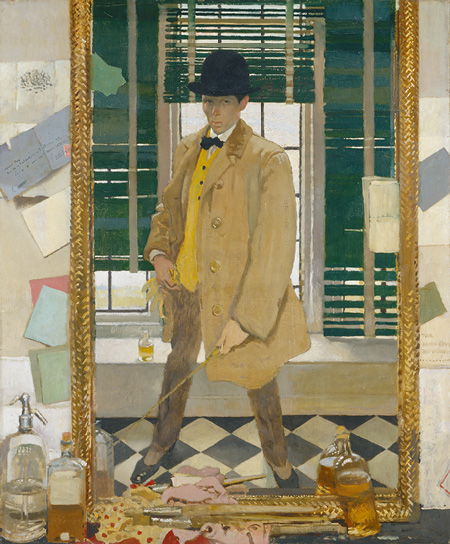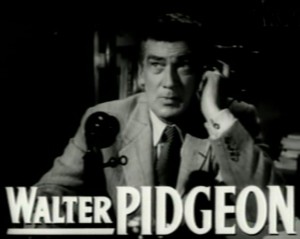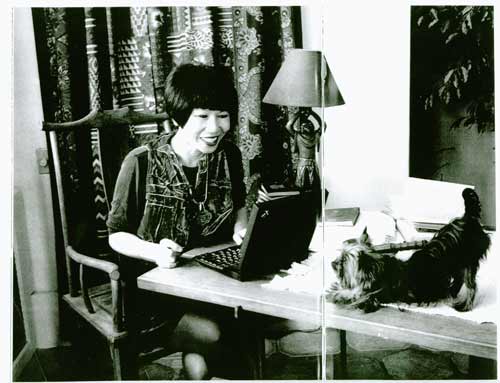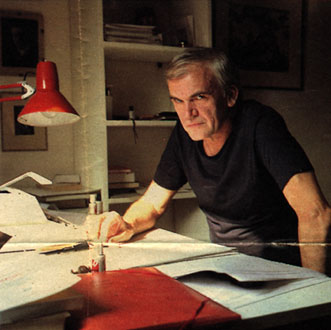Winter in Maine on Route 113 by Denis Dunn

Here's Some Snow For You
snow bent birches
bow down low
to log laden
trucksthe mountains maturely
hold onto acres of snow
like a 19th century bodice…can the child of spring
be far from birth?
Countdown to AWP: What I’m (not) looking forward to
One thing that gets me through this awful thing called my life is reading the (dis)likes feature that Aaron and Elizabeth do at the Hobart website. I find myself anxious for the month to pass just so I can see what new things are making their way onto the lists. I feel like I ‘know’ Aaron and Elizabeth that much more, I feel a little involved in their lives (maybe in a creepy way), and I too saw Four Christmases and hated it.
So, with a little nod their way, I’d like to list what I’m (not) looking forward to about this year’s AWP Conference in Chicago. AWP is in a month, so we have plenty of time to think about it.
Nice Hat

profile picture without evidence of flash that you took this yourself
and I saw the best minds of my generation
living in lofts
thinking they were the best minds of their generation
while the world hacked up tax breaks and jet fighters
-Death Lasts
Shake
by Joshua Beckman
Joshua Beckman has a wikipedia page.
Joshua Beckman has a page on poets.org.
Joshua Beckman is a great mind and a great poet. As early as 2004 you could google his name and ‘rock star poet’ would surface as a result.
Over the past ten years he’s published six books of poetry. His seventh, “Take It” is due sometime this year from Wave Books.
The first thing I read by him was his tiny, tiny book (amazon cites it at 6.1 x 4 x 0.5 inches and 3.8 ounces, I would say it is the size of about half a sandwich) “Your Time Has Come” put out by Verse Press.
This holiday season I Secret Santa’d myself and picked up “Shake” and “Something I Expected to Be Different.”
Start your New Year right and pledge to read a poem a day until you’ve mowed down his entire collection of works.
Giant Talks: Joshua Cohen interviewed by Lily Hoang
 I first came across Joshua Cohen’s work a couple years ago at AWP. I walked by the Starcherone Books table and asked editor Ted Pelton which book he would recommend. He handed me a bunch, and luckily, among those was Cohen’s A Heaven of Others. What struck me then (and continues to strike me every time I read his work) is what an incredible badass he is. For one, he’s an amazing writer. His words are quite literally delicious. But beyond that, he’s the most prolific writer I know (and I know some crazy prolific writers!). Still shy of thirty, he’s got four books in print, one on the way from Dalkey Archive, and tons more sitting either on a physical or virtual shelf. Cohen is a powerhouse, but don’t take my word for it. Go buy one of his books. You won’t regret it.
I first came across Joshua Cohen’s work a couple years ago at AWP. I walked by the Starcherone Books table and asked editor Ted Pelton which book he would recommend. He handed me a bunch, and luckily, among those was Cohen’s A Heaven of Others. What struck me then (and continues to strike me every time I read his work) is what an incredible badass he is. For one, he’s an amazing writer. His words are quite literally delicious. But beyond that, he’s the most prolific writer I know (and I know some crazy prolific writers!). Still shy of thirty, he’s got four books in print, one on the way from Dalkey Archive, and tons more sitting either on a physical or virtual shelf. Cohen is a powerhouse, but don’t take my word for it. Go buy one of his books. You won’t regret it.
— Lily Hoang
LH: Something that really strikes in about your writing is the very distinctive voice your characters have. In A Heaven of Others (from here on out known as Heaven), the narrator has an extremely urgent voice, one that compelled me to read faster & faster, until I was practically skimming. (Then of course, I had go back and read the whole thing over again to really savor the language!) Cadenza for the Schneidermann Violin Concerto (known as Cadenza), however, has a much more patient narrative voice. Can you tell me more about the development of these narrators in particular? Please feel free to talk about your other works as well.
JC: The voices of both my novels are fictions within fictions, and, as that, they’re opposites: The voice of A Heaven of Others is that of 10-year-old Jonathan Schwarzstein of Tchernichovsky Street, Jerusalem. The voice of Cadenza for the Schneidermann Violin Concerto is that of Laster, an octogenarian, perhaps nonagenarian, concert violinist from eastern Austro-Hungary. Again, both are fictions, meaning both are ultimately Me. I think what I’ve done in all my books so far comes, primarily, from speech rhythm. The rhythm of how I want to speak. How I speak to myself. As for echoes, A Heaven of Others derives from poetry, especially 20th century Hebrew poetry (Dan Pagis), and German-Jewish poetry (Paul Celan), while Cadenza comes from comedy, and despite its typographical trickery owes more to the history of the novel, and much, specifically, to Saul Bellow.
What’s your daily routine?

A friend just reminded me about this blog called Daily Routines. The blog seeks to gather together in one place the daily work routines of various smart people – like, you know, Günter Grass and Joseph Campbell. One of my favorites is the post on Charles Darwin:
| 7 a.m. | Rose and took a short walk. |
| 7:45 a.m. | Breakfast alone |
| 8–9:30 a.m. | Worked in his study; he considered this his best working time. |
| 9:30–10:30 a.m. | Went to drawing-room and read his letters, followed by reading aloud of family letters. |
| 10:30 a.m.– 12 or 12:15 p.m. |
Returned to study, which period he considered the end of his working day. |
| 12 noon | Walk, starting with visit to greenhouse, then round the sandwalk, the number of times depending on his health, usually alone or with a dog. |
| 12:45 p.m. | Lunch with whole family, which was his main meal of the day. After lunch read The Times and answered his letters. |
| 3 p.m. | Rested in his bedroom on the sofa and smoked a cigarette, listened to a novel or other light literature read by ED [Emma Darwin, his wife]. |
| 4 p.m. | Walked, usually round sandwalk, sometimes farther afield and sometimes in company. |
| 4:30–5:30 p.m. | Worked in study, clearing up matters of the day. |
| 6 p.m. | Rested again in bedroom with ED reading aloud. |
| 7.30 p.m. | Light high tea while the family dined. In late years never stayed in the dining room with the men, but retired to the drawing-room with the ladies. If no guests were present, he played two games of backgammon with ED, usually followed by reading to himself, then ED played the piano, followed by reading aloud. |
| 10 p.m. | Left the drawing-room and usually in bed by 10:30, but slept badly. |
The Behavior of Pidgeons

Another short update. Here is a story by my friend Gabriel Blackwell from Portland. It makes me think about math cranks, those autodidacts who pester tenured professors at our nation’s major universities.
I think this is Gabe’s first published anything, and it is on Conjunctions. Way to go, Gabe.
Tennis Poem By Edward de Vere

This Man Did Not Write This Poem, But He Does Play Tennis
Whenas the heart at tennis plays (Love compared to a tennis-play)
Whenas the heart at tennis plays, and men to gaming fall,
Love is the court, hope is the house, and favour serves the ball.
The ball itself is true desert; the line ,which measure shows,
Is reason, whereon judgment looks how players win or lose.
The jetty is deceitful guile; the stopper, jealousy,
Which hath Sir Argus’ hundred eyes wherewith to watch and pry.
The fault, wherewith fifteen is lost, is want of wit and sense,
And he that brings the racket in is double diligence.
And lo, the racket is freewill, which makes the ball rebound;
And noble beauty is the chase, of every game the ground.
But rashness strikes the ball awry, and where is oversight?
and quote; A bandy ho,and quote; the people cry, and so the ball takes flight.
Now, in the end, good-liking proves content the game and gain.
Thus, in a tennis, knit I love, a pleasure mixed with pain.
This is my husband. I wrote this poem about our love.
Jonathan Baumbach at Maud Newton

not USAirways #1549, from which everyone appears to have safely escaped
I just finished reading this post by Jonathan Baumbach over at Maud Newton’s blog. He talks a little about the founding of FC(2) and then mentions his surprise at how long the collective has lasted. Originally, he had meant for the alternative press to be a ‘stopgap action in a period of emergency.’ He writes though that his assessment of the situation back then was maybe too optimistic, which explains, perhaps, why FC2 has continued so long. I hadn’t realized that the original collective was meant only as a temporary fix, to ‘jostle the publishing establishment into taking more chances with work that was out on the edge.’ But as time passed, Baumbach says, the industry turned more conservative in its tastes, and FC2 was needed more than ever.
Here’s a tiny bit more from the post:
Originality tends to generate difficulty in that it breaks faith with expectation, undermines the prevailing verities of last season’s fashion. Originality, by definition, takes us by surprise.
And:
Commercial publishing tends to court literary work that is a thinly disguised variation on the recognizably artful — last year’s award winner tricked out to seem at once new and safely familiar.
Thanks to Maud Newton for posting this.
Grace Paley takes heads

She does. Honest. Takes head and doesn’t give them back.
Example from the story “Wants”:
He had had a habit throughout the twenty-seven years of making a narrow remark which, like a plumber’s snake, could work its way through the ear down the throat, halfway to my heart. He would disappear, leaving me choking with equipment.
Here’s what I notice about this: that shouldn’t have worked. The metaphor—the plumber’s snake entering the ear and making its way near the heart—should come off as cliche. Familiar. A little silly. Following it up with “…leaving me choking with equipment,” redeems it.
Writers: push a cliche to the point where it strains to near snapping and you revive it.
Man, that’s a funny line.
Word Spaces: All-stars
Here’s an alternative take on Word Spaces, where instead of asking writers about their work space, I simply google “[name of writer] desk” and write about the images I found. I do this because I prefer not to interface with actual people.
AMY TAN’S DESK

I’m getting some ‘major Asian vibes’ here. She’s got Indonesian-type textiles on both her windows and body, and some effigy island-man lamp. She probably just got some big smile email from an executive at Lifetime who wants to adapt one of her books — daunting for the dog no doubt, who just might end up on the menu at the film’s reception, if the Asians have their way. (I’m allowed to make Asian jokes.)
MILAN KUNDERA’S DESK

From the looks of him, he should have called his book “The Unbearable Heaviness of Being Czech-French.” I’m the last guy you’d call a nationalist, but I seriously think there’s something wrong with Europeans. I know he was pro-communist but really Milan, does your lamp, folder and white-out have to be red? And who even uses white-out anyway? I don’t know, I think he’s sniffin’.
